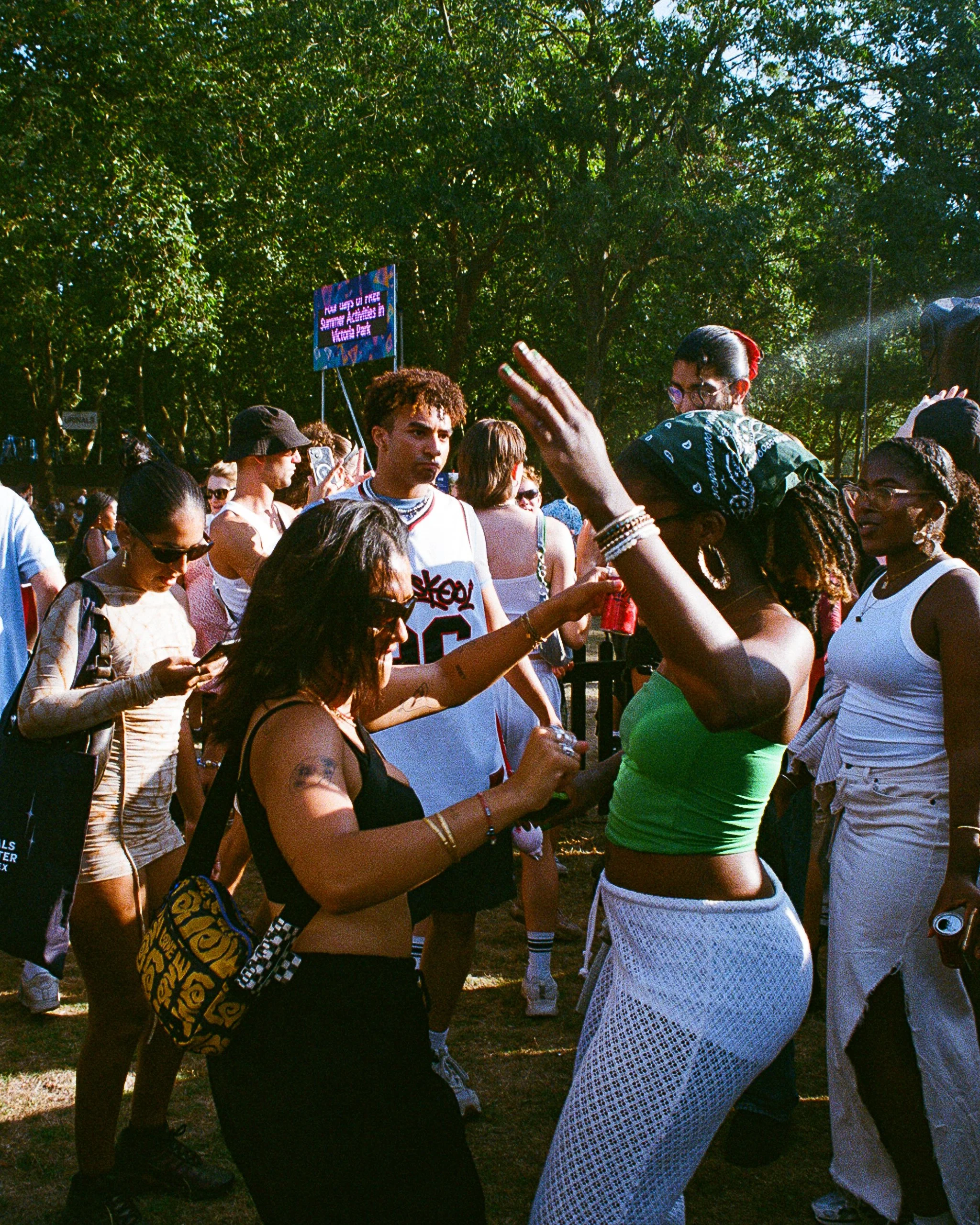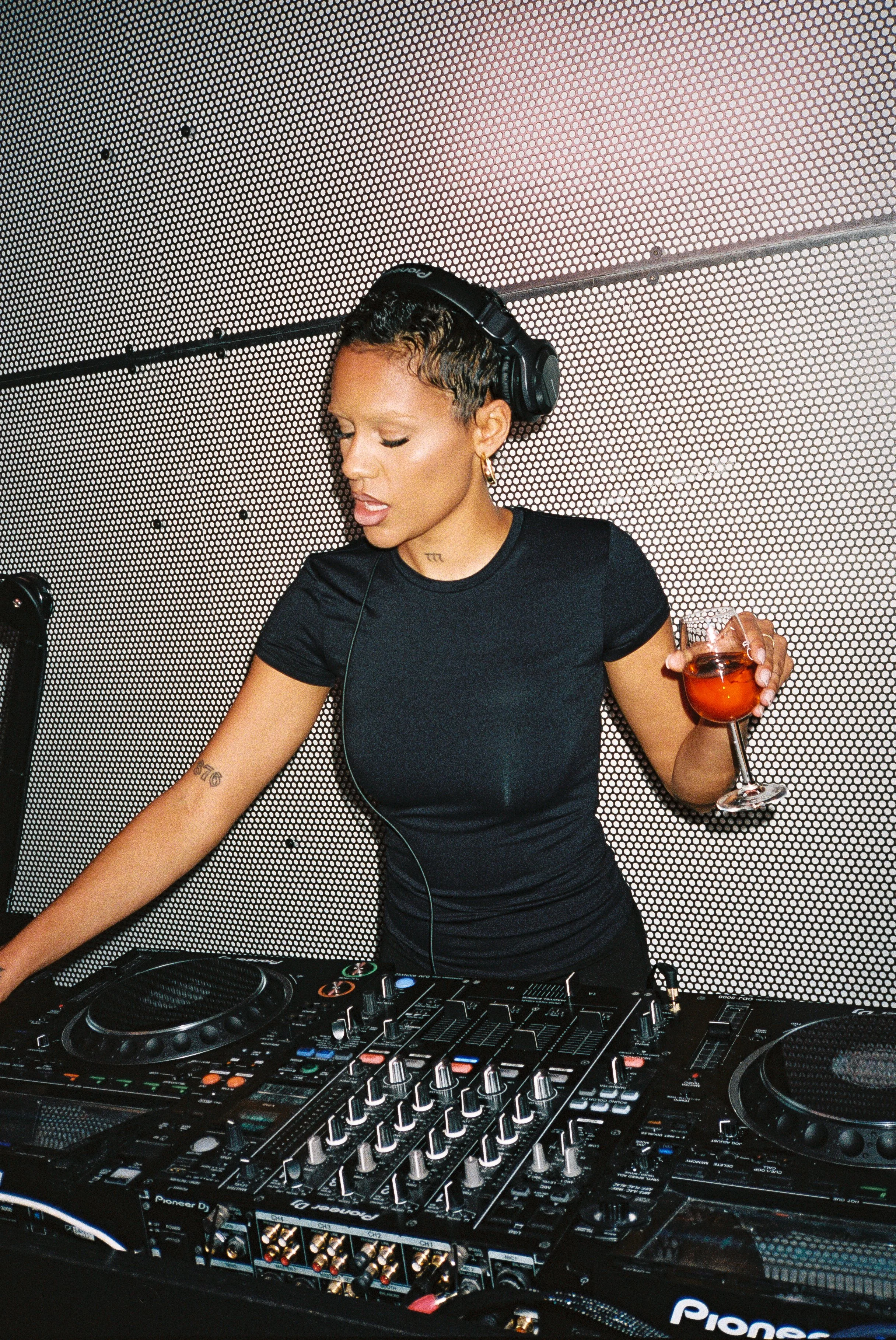Finding My Frequency: A Personal Transmission on Community Radio
In a world that never stops rushing, radio is where I press pause. It is one of the last places left where attention feels intentional and imagination is cultivated. In an age of endless distraction, radio has offered me something quietly radical: presence.
The smell of potato waffles, the crackle of Chris Evans on the Roberts Radio, and my dad singing in the kitchen – radio was always there. I can’t remember a time when I wasn't surrounded by it. My dad relished raising daughters and took any chance he could get to spend time with us, so mornings were sacred in my house. While mum worked, dad entertained – that was the rule. On special occasions (mostly Fridays), he’d treat us to a “dad-style fry up”, featuring potato waffles, black pudding, and real Heinz ketchup, not the fake shit. I can still picture the quiet joy on my dad’s face: “How d’ya like your eggs in the morning?” he’d sing. “I like mine with a kiss!” we’d screech back at him. Weekends, too, were saturated with the hubbub of radio. Every Sunday, I’d wake to the gentle hum of The Archers omnibus drifting through the house, followed by the comforting chime of the Desert Island Discs theme tune (if you know, you know). As I lay there listening, half in and out of consciousness, I imagined my grandparents. I pictured my grandma sitting peacefully beside my grandad at their dining table, the remains of muesli and orange juice strewn across the tablecloth, listening to the mundane scandal of “Who let the sheep out of the field this time?!”.
Photo Credit: Jake Allen
Radio has a unique ability to create shared moments, a kind of collective consciousness that travels through frequencies and connects us across distance. It holds us in place. I remember so vividly, whilst living abroad in Hamburg, the moments where I’d be hit with sudden pangs of Heimweh (a German word that translates to ‘home-pain’). On those days soaked in slow, aching longing, I found comfort in the frequencies, from Lauren Laverne on Radio 6 Music to an unexpected afternoon play on BBC Radio 4. And somewhere in the middle of a strange city, surrounded by unfamiliar sights and smells, I was briefly home.
Radio serves as an anchor: a slower, more intentional form of communication that keeps us grounded. It doesn’t shout for attention; it holds it. Steady and resonant, it speaks without urgency, yet insists: I’m here. Listen. But it wasn’t just something I grew up with; I grew into it. After university, I started volunteering at a local community station in Bristol, while living back home with my parents. At first, I was nervously cueing tracks and adjusting levels on the tech desk, but before long, I was reading traffic and weather reports on the morning show. From that point on, I was hooked. Each week, my dad would drive me to Easton Community Centre before sunrise, then wait outside with the radio turned up, listening to me from the car, before driving me home. We’d found our new morning routine. There was something about the quiet intimacy of it: a space where slowness, sincerity, and attention still had value. I was the voice waking people up, soundtracking their drive to work, signposting the day ahead. “Flawless Alice,” my mentor once called me on air – a phrase my dad still proudly repeats. So, I figured, I must be good at this.
Photo Credit: Samuel George Wilson
Instilled with confidence, my passion deepened quickly as I dove headfirst into researching everything I could about radio. Before long, my parents were waving goodbye to their baby all over again, as I headed off to London. I spent a year completing a radio diploma, and during that time, I started exploring the many community radio stations scattered across the city. I was shocked by how many stations there were - wait, it’s not just NTS?! One in particular caught my eye: foundation.fm, a community station that champions queer, non-binary, and female talent. That’s a bit of me, I thought. So by the power of manifestation - and a shout out to the Kickstart scheme - I landed a job as an Assistant Producer. The rest, as they say, is history. Over the following years, I honed my skills and watched everything I’d learned come to life; what started as a passion grew into a career and a whole new chapter. I’d gone from presenting case studies on foundation.fm, to becoming the Station Manager. Over the years, I met some of the most talented, open-hearted people I’ve ever known – and there, I truly discovered the magic of community radio.
This term “community” is one I often try to avoid using for fear of cliché or banality, however one definition continues to hold weight for me: ‘A group of animals or plants in the same place; (Ecology) a group of organisms growing’ (Oxford Dictionary).
At the heart of every community radio station is exactly that: a group of organisms growing. These spaces aren't centred on the individual “I,” but built around the slow, collective work of understanding, empathy, and becoming. Community radio is an incubator of creativity and culture. Its strength lies in how it nurtures growth, not just for the station itself, but for everyone who passes through it. I remember one of the first things my boss (and now great friend), Frankie Wells, told me when I joined foundation.fm: “We always want people to know they can grow beyond us.” At first, I was puzzled. Why would we want people to outgrow us? But over time, I understood. The point of community radio isn’t to gatekeep or contain; it’s to open doors, to be the springboard for something greater. It’s a family, yes, but one that builds the foundations for culture to keep moving forward, even if it’s without you.
Photo Credit: Samuel George Wilson
Unlike commercial radio, community radio runs on a mix of listener support and brand partnerships, which means creative freedom is in its DNA. Without the pressure to chase profit or polish playlists for mass appeal, community stations can take risks. They can give space to radical, niche, or unfamiliar sounds. They can air the political and the deeply personal, amplifying voices that often go unheard in mainstream media. Race, gender, resistance, joy, grief can all coexist in the soundwaves of these stations.
This independence is what makes community radio not just cultural, but political. Its commitment to diversity, equity, and experimentation is a quiet act of resistance against a world that values content over care, and style over substance.
But community radio is not only building resistance, it’s concomitantly replanting the roots of music. A generation raised on algorithms and subdued by social media, we’ve learned to navigate the world through a filtered lens. Somewhere along the way, quietly and almost unnoticed, our listening tastes got flattened into the feed. Daniel Ek, CEO and co-founder of Spotify, has a net worth of around $7.2 billion, making him wealthier than any musician in history. That alone tells a story.
But community radio tells a different one. It rekindles the joy of genuine discovery that has been lost amongst the algorithmic noise, restoring a more human way of listening. It reminds us that music isn’t just data; its memory, emotion and shared experience. It’s not about profit or polish, but presence. The residents of community radio bring what moves them, and trust someone else might feel it too.
Photo Credit: Jake Allen
As DJ and Creative Director Zooey Gleaves (aka Lagoon) articulates, “Community radio is one of the few cultural models that introduces people to each other without hierarchy or financial incentive. It's built on mutual admiration and respect — and that’s what draws people in: its purity.”
That ethos makes listeners feel safe to explore; to embrace their differences, and more importantly, their shared humanity. There’s no “you can’t sit with us” attitude; in fact, people are invited in. From Icelandic experimental pop to Indonesian Dangdut to Scandinavian Skweee (yes, it’s real), community radio has room for it all.
At NTS, the motto “Don’t Assume” encapsulates the kind of listening practice that lies at the very heart of community radio. Celebrate the unexpected. Resist the urge to categorise. Let music, and people, be messy, surprising, and authentic.
In so many ways, community radio is creating a sonic revolution. In an age of digital overwhelm and detachment, it offers an antidote: grounded, unfiltered, and emotionally raw. Anchored in local geographies but open to all frequencies, community radio becomes a site of both rootedness and resistance.
A place where voices, stories, and music form a kind of sonic map of here, where here is a moment in time, in history, shared intimately between one person’s consciousness and another’s.Photo Credit: Samuel George Wilson
Steven Allen once said: “Radio is the theater of the mind; television is the theater of the mindless.”
And community radio?
It’s the theater of attention. And we’re all still here, listening.





